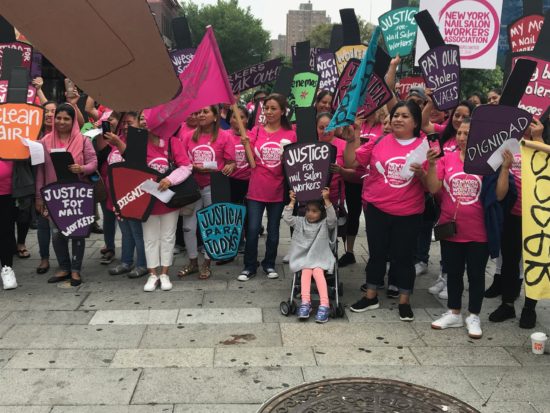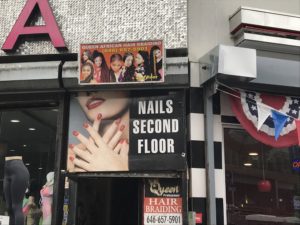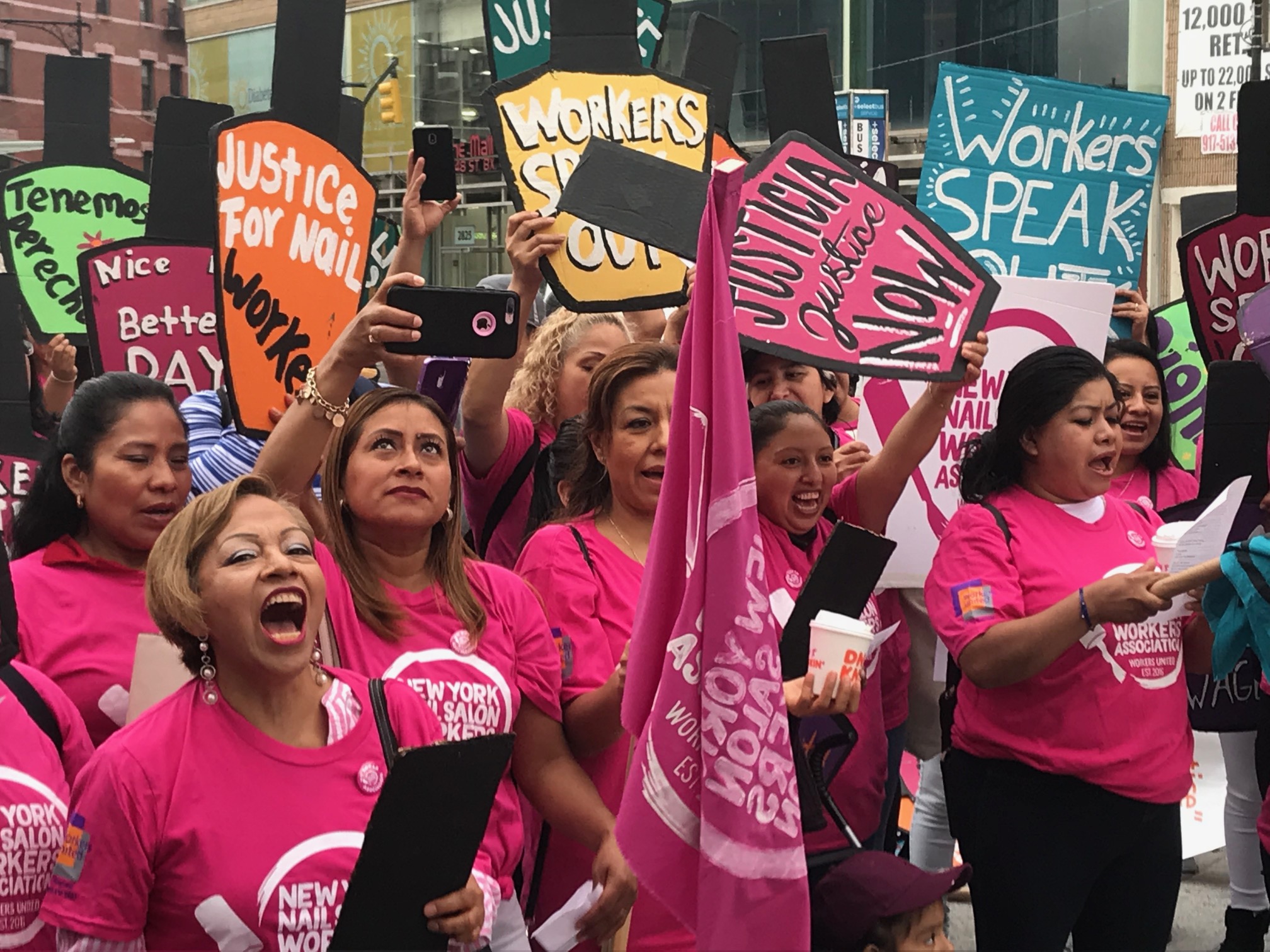
When management at Envy Nail 148 in The Hub cut off workers’ access to the small room where they used to take breaks and eat lunch, away from the chemicals that permeate the unventilated main salon, that was the last straw. Not only had their lunch breaks been sliced to as little as 10 minutes, now they were forced to take their meals at the same narrow tables where they manicure their customers, directly in front of rows of shelves where the bottles of acrylics are kept, emitting powerful fumes.
Unions say those stressful and hazardous conditions are the norm for workers in nail salons across the city. They are pushing for legislation that would reform the industry, by increasing wages and providing workers with healthier and safer working conditions.
Some hundred workers from nail salons citywide gathered with union representatives and elected officials in front of Envy 148 at Roberto Clemente Plaza in The Hub on Sept. 10, to demand fundamental reforms to an industry they say is exploitative and inhumane. They chose Envy 148 because, they said, the salon is emblematic of the 4,000 salons around the city in the way management mistreats workers.
A message was left with the manager of Envy 148, offering its CEO, who is listed with the NY Department of State as Son D. Tran, a chance to respond for this story, but at press time there was no response.
Yanelia Ramirez, 38, began working as a “técnica de uñas” (nail technician) when she came to New York from Honduras 14 years ago and has worked at Envy 148 since 2011. Although the Soundview resident said she fears reprisals by the owners for criticizing them, conditions have become so intolerable that she opted to join her fellow manicurists to cast light on the abuses.
“I’m afraid to talk but I have to do it,” said Ramirez, addressing the crowd in Spanish as they chanted, “Listen up, Envy, we will fight,” and “compañeras, don’t be afraid, fight for your rights.” They jeered when she told them that she is forced to take lunch quickly at her work desk, inhaling chemicals while she eats.
Ramirez says she is often paid as little as $70 for a 10-hour shift. The Nail Salon Workers Association say that owners and management justify low wages by misclassifying workers as independent contractors who get tips to augment their pay. But workers say tips are meager to nonexistent, and because they do not set their own schedules and are not provided keys to the salons they work in, they can not be considered independent contractors.

One former nail technician at Envy told the gathering that she recently quit after 11 years because she was being forced out. Amelia De Jesus said that after complying with a Department of Labor investigation into the company alleging wage theft and health and safety violations, the owners slashed her schedule, then transferred her to another location to silence her.
Fighting back tears, De Jesus said that she worked so many hours during her years at Envy to try to make ends meet that “I didn’t spend time with my kids. I don’t know my kids.”
At the root of the problem, advocates contend, is the fact that New York City’s nail salons offer some of the cheapest manicures in the country. Owners struggle to pay their rent, causing them to cut corners any way they can, say the advocates adding that owners’ first measure of cost-cutting is stiffing the workers.
Bronx Borough President Ruben Diaz Jr. recounted to the crowd that a number of técnicas from local salons came to his office in the spring, urging him to help push for industry reform. Diaz insisted that he will advocate for them, later telling The Herald that he is “working with state legislators and city officials to hold (owners’) feet to the fire.”
City Councilwoman Catalina Cruz of Queens, who has been one of the most outspoken public officials for industry reform, said that legislation she is helping draft will help bring “a radical change to how the industry works.” Cruz said she is confident the union will support the bill, which will add industry-specific measures onto legislation currently in the state Senate to enforce more general wage theft protections.
According to Luis Gomez, Organizing Director for Workers UnitedNYNJ, which organized the rally, finalizing meaningful legislation will require cooperation from owners.
“The reality is that before we get to that point, business owners have to come to the table with workers and elected officials,” said Gomez. “We need businesses to make more money and to share it with workers.”

